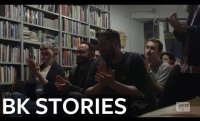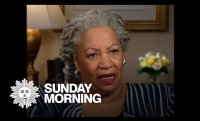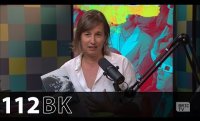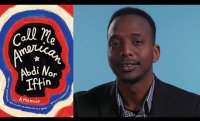Submissions are open for a wealth of opportunities with a deadline of August 15 or August 16. Each contest offers a prize of $1,000 or more, or a prize of $500 with no entry fee—and one also awards two cases of beer. Cheers, writers!
Baton Rouge Area Foundation Ernest J. Gaines Award for Literary Excellence: A prize of $10,000 is given annually to an emerging African American writer for a book of fiction published in the current year. The winner also receives travel and lodging expenses to attend an awards ceremony and participate in educational outreach events in Baton Rouge, Louisiana, in January 2020. Anthony Grooms, Edward P. Jones, Elizabeth Nunez, Francine Prose, and Patricia Towers will judge. Deadline: August 15. Entry fee: none.
Dogfish Head Craft Brewed Ales Poetry Prize: A prize of $500, publication by Broadkill River Press, ten author copies, and two cases of Dogfish Head craft beer are given annually for a poetry collection written by a poet living in Delaware, Maryland, New Jersey, New York, North Carolina, Pennsylvania, Virginia, Washington, D.C., or West Virginia. The winner is expected to attend a reading and award ceremony at the Dogfish Inn in Lewes, Delaware, on December 14. Lodging is provided, but travel expenses are not included. Joseph Millar will judge. Deadline: August 15. Entry fee: none.
Grayson Books Poetry Prize: A prize of $1,000 and publication by Grayson Books is given annually for a poetry collection. Robert Cording will judge. Deadline: August 15. Entry fee: $25.
Gulf Coast Barthelme Prize for Short Prose: A prize of $1,000 and publication in Gulf Coast is given annually for a work of short prose. Deadline: August 16. Entry fee: $20, which includes a subscription to Gulf Coast.
Indiana Review “1/2 K” Prize: A prize of $1,000 and publication in Indiana Review is given annually for a poem or a work of flash fiction or creative nonfiction. Megan Giddings will judge. Deadline: August 15. Entry fee: $20, which includes a subscription to Indiana Review.
Kore Press Poetry Prize: A prize of $1,500, publication by Kore Press, and 20 author copies is given annually for a poetry collection by a woman, trans, or gender-nonconforming poet. Erica Hunt will judge. Deadline: August 15. Entry fee: $28, with some entry fee scholarships available.
Red Wheelbarrow Poetry Prize: A prize of $1,000 and publication in Red Wheelbarrow will be given annually for a poem. The winner will also receive 20 copies of a letterpress broadside of the winning poem. Marilyn Chin will judge. Deadline: August 15. Entry fee: $15.
TulipTree Publishing Stories That Need to Be Told Contest: A prize of $1,000 is given annually for a poem, a short story, or an essay that “tells a story.” The winner will also receive a two-year subscription to Duotrope and publication in the contest anthology, Stories That Need to Be Told. Deadline: August 15. Entry fee: $20.
Visit the contest websites for complete guidelines, and check out the Grants & Awards database and Submission Calendar for more contests in poetry, fiction, and creative nonfiction.









